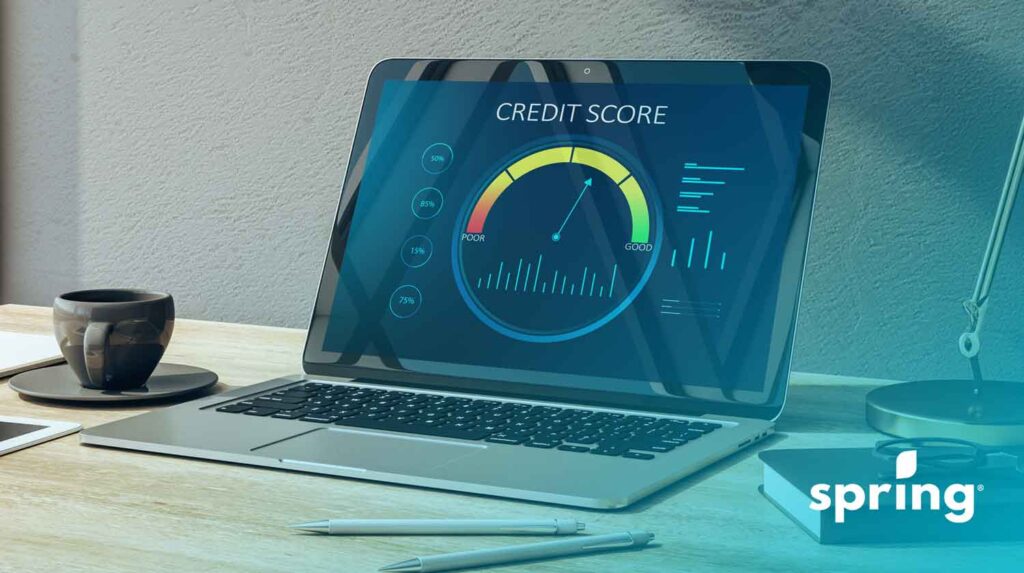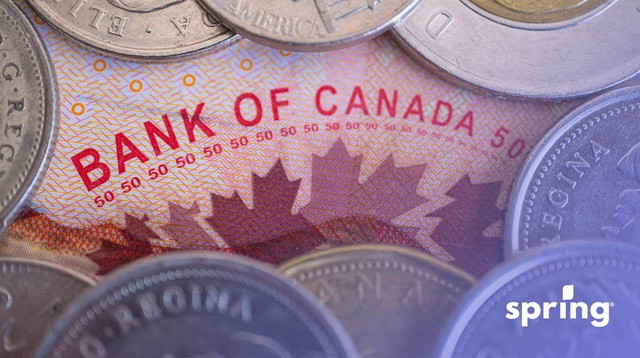- Payment History (35%)
- Credit Utilization (30%)
- Credit History (15%)
- Public Records (10%)
- Number of Inquiries (10%)
Based on these breakdowns, any movement in your credit situation skews these percentages which cause changes in your credit score. For that reason, paying some things fully off isn’t always in the best interest of your credit score. Confusing, right?
Unfortunately, credit is quite as straightforward as we’d like. Whether you have an excellent credit score, a good credit score, or a bad credit score, it is important to have an idea of what causes the increases and decreases in your credit score. This can help you keep your credit score or improve it when you need to.
Why isn’t Your Credit Score Increasing After Paying Off a Debt?
Well, there are actually a few different reasons for this. The first is collections. Anytime you pay off a collections debt it does not increase your credit score. This is because you are no longer paying back the company you borrowed the money from.
You are now paying a third party who has purchased the debt off of the original borrower. It also stays on your credit report for around 7 years from the time it enters collections, whether it is paid off or not. That being said though, it will be marked on your credit report as paid.
The next reason that your credit score might stay stagnant, or even decrease, is credit utilization. If you pay off and cancel a certain debt, it could mess with your credit utilization ratio.
Here is an example: say you have 2 different lines of credit. The first line of credit has a limit of $5000 and you have spent $2500 of that. The next line of credit has a credit limit of $3000 and you have only spent $200 of it. This leaves your total credit limit at $8000 and your total usage is $2700. This makes your credit utilization sit at 33% of your available credit. If you pay off the $200 and cancel the $3000 line of credit, your credit limit becomes $5000 and your credit utilization then becomes 50%.
In Canada, for the best impact on your credit, you should keep your credit utilization under 35%. In the example above, you are decreasing your debt, but increasing your credit utilization, which therefore lowers your overall credit score.
Is This the Same Principal When Paying Off Your Credit Card?
Yes, in some cases paying off your credit card can boost your credit score, but it ultimately depends on the way your different credit tradelines are dispersed among revolving credit, installment credit, and open credit.
Credit card accounts as well as lines of credit are revolving credit. This means the main impact is the total revolving credit available versus the amount used. You are often much better off credit-wise to leave your credit balances under 35% used instead of paying them off and canceling it, at least from a credit standpoint.
This shows companies that you are serious about managing your finances and shows responsibility. The more diverse you keep your credit report and keep your credit utilization low, the higher your credit score is going to be.
Credit card companies don’t really give you a lot of information when it comes to how to properly use a credit card, so a lot of these rules can be confusing. When you are given a credit card at the average age of 19, it is often a learning curve on how to use it and how it affects your credit.
Ways to Increase Your Credit Score in Canada
There are a few different things you can do to gain a better credit score.
- Like we mentioned above, you can keep your credit utilization below 35%.
- Make all of your payments on time. While things like your phone bill and other monthly bills are considered to be open credit (you don’t boost your credit by paying them on time). Open credit does hurt your credit, however, if you have any late or missed payments. Each one will take a hot on your credit score.
- Increase your credit history length. This means trying to avoid canceling credit altogether. The more positive history you have on your report, the better.
- Limit the number of credit inquiries on file. Try to avoid applying too much for credit, this is also a red flag to lenders and each hard credit check does lower your credit score. It is recommended to have no more than 5 hard credit checks per year. There is no limit on soft pulls since they don’t affect your credit.
The Monthly Increase in Credit Scores
While credit scores are updated monthly, sometimes more often depending on how many tradelines you have on file, it can take a while for it to reflect a payment or a closed account. Sometimes it can take anywhere from 1 to 2 months.
This means that even though you have made payments that should increase your credit score, it may not be visible right away, leaving your credit score the same. It is also possible that you were late or missed a payment. This would also cause a drop in your credit score.
What if Your Credit Score Stalled?
A big reason for your credit to stall is that even though you are making your payments on time, it is likely you are only making minimum payments and your balances aren’t going down. Essentially, you aren’t doing anything to hurt your credit, but you aren’t doing anything to improve it either. If this is happening, it is important to get your credit utilization in the 35% range. This will help to increase your credit score.
How to Increase Your Credit Score Quickly
While it may seem daunting, there are actually a few things you can do to help raise your credit score. Many of these will work quite quickly as well.
- Be strategic when paying your credit card balances. The best way to do this is to make credit card payments more than once per month that is more than the minimum payment. It is also a good idea to set reminders to pay your credit card bill on time. The lower balance will be reported to the credit bureau and raise your score quickly.
- Raise your credit card limit. The credit utilization factor on your credit report is calculated by what percentage of your limit you are holding as a balance. If you raise the limit, you are lowering your credit utilization ratio.
- Become an authorized user. Having a relative or friend allow you to become an authorized user allows you to “piggyback” on their credit. Their utilization is added to your credit report, also having a positive impact on your credit score.
- Pay your bills on time. Even one missed payment can have a negative impact on your credit report. Making sure your bills are paid is the easiest way to avoid a negative impact on your credit score.
- Pay attention to your credit report. Any mistakes on your credit report can make a large impact on your credit report. If you see one, report it and dispute it. Once it is resolved you will see a positive impact on your credit score.
- Use a secured credit card. Essentially, this type of card can be used once a cash deposit has been made to the lender. The limit on the card is usually the deposit amount you give the lender. You use this just like a regular credit card and, as long as you make your payments on time, it will help you obtain a higher credit score.
- Diversify your credit report. Having more than one type of tradeline offers lenders a credit mix to look through and improves your credit score. Each type of credit impacts your credit score differently, so a mix shows your financial responsibility in different ways.
How Long Does it Take to Improve Your Credit Score?
This is a difficult question to answer. How long it takes ultimately depends on the reason you need to improve your credit. As mentioned above, you can increase your credit in a month or so by increasing your credit limit or adding a new tradeline, if credit utilization is the issue.
If the reason is from the amount of debt you have, and it can’t be solved by adding more tradelines, then you are looking at a longer timeline. The best way is to start paying off the debt, but that can take some time.
For someone with limited credit history on their credit report, the more positive tradelines that you add, the faster your credit score will improve. This gives the credit bureau and lenders a better indication of your financial responsibility.
If you have injured your credit report due to bankruptcy or collections, that can sometimes take years to recover from. That negative history on your credit report is quite powerful and the only way to negate it is to wait for it to fall off, or to add positive tradelines to cancel out the negative.
How Long Does it Take to Build Credit From 600 to 700?
Adding 100 points to your credit score, especially from 600 to 700, can take anywhere from 3 months to years depending on your financial situation. It all depends if you need to focus on credit utilization, making payments on time, or even focusing on adding more tradelines to your report.
The big thing with raising your credit score, especially something substantial like 100 points, your best bet is to not close old credit accounts that are paid off. They are a positive impact on your credit history, so they are needed to keep you at a higher credit score.
It is important to keep in mind when you are building your credit score that there are 3 major credit bureaus in Canada.
- Equifax
- TransUnion
- Dun & Bradstreet
Each of these bureaus will display a slightly different credit score, so be sure to keep an eye on all three to see where your score is sitting. There are plenty of free credit report apps that will do a soft pull to show you a relatively accurate idea of your credit score. Different apps reflect different credit bureaus.
Can You Increase Your Credit Score with Spring Financial?
Need to add a new credit to your credit report or need help consolidating your debt to convert your revolving credit into installment credit? No problem, we can help!
At Spring Financial, payments made on all of our products are reported to the major credit bureaus (Equifax and Transunion) to help with the positive impact on your credit score. As long as you make your payments every month, we will report positively to the credit bureau on your behalf.
Not only do we specialize in personal loans ranging from $500 to $35,000, but we also specialize in credit building products. No matter what your credit score is, we can help. You can apply online for any of our products or you can give us a call at 1-888-781-8439.








